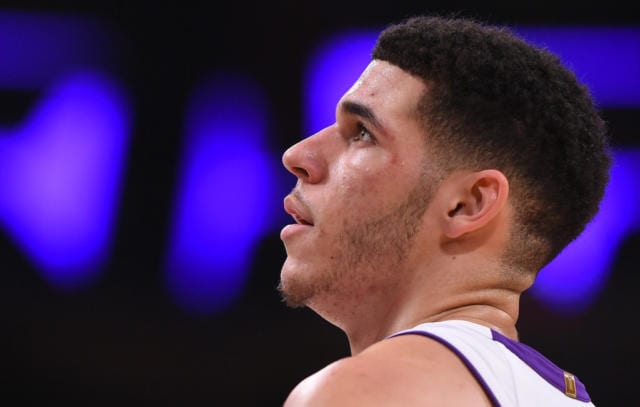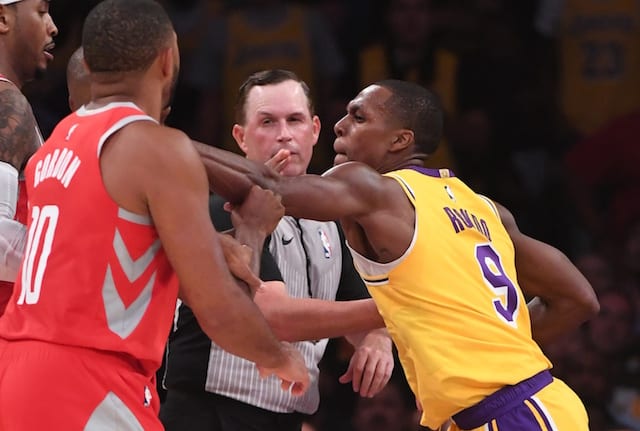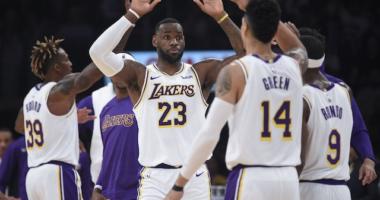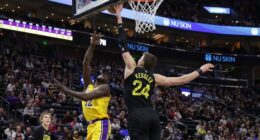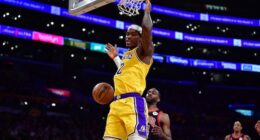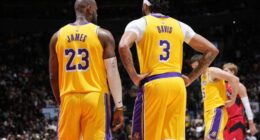For the millions of people who hate the Lakers and Kobe Bryant, and the basketball writers who love any opportunity they can get to mask an opinion as fact, this was another great summer. Not only have they been able to rejoice in the Lakers failed attempt at building a playoff-caliber roster, but they seem giddy like schoolgirls at the prospect of Kobe finishing his career without another chance at a sixth ring. The cherry on top of their schadenfreude sundaes has been in placing all of the blame for it on Kobe’s extension.
There was ESPN’s Justin Verrier who wrote:
It would be an appropriate scarlet letter for the Lakers’ Sith Lord. By signing a two-year, $48.5 million extension at age 35, Bryant not only hung a millstone on the Lakers’ salary cap, he effectively posted a “BEWARE” sign to ward off any player capable of providing the high-caliber help they so desperately need. The problem isn’t merely having to play alongside a ball-dominant, domineering, past-his-prime alpha dog, though that was enough to drive Howard right past those “Stay” billboards and into the arms of Daryl Morey. It’s that so much of the Lakers’ worldview still revolves around that guy, to the point that the team’s brass — despite so very much evidence that the on-court product would continue to suffer should they continue to do so — bought back in, at a hefty price, for two more years. “
Here’s SBNation’s Tom Ziller:
This is quite a race to watch: the stopwatch on the revival of the Lakers vs. the hourglass of Kobe’s career as a star. And the bigger concern for all involved, including fans, is that the two issues are intertwined, that at his incredible price tag in the new, more heavily capped NBA, Kobe is actually a reason the Lakers are so unable to bounce back quickly. Kobe’s really smart, and understands the NBA financial system better than some general managers. He almost assuredly understands that his own paycheck (regardless of production) has left Mitch Kupchak hamstrung in the summer market.”
Here’s another SBNation writer, Satchel Price:
Just months ago, the Lakers were still talking a big game and aiming their sights towards marquee free agents such as LeBron James and Carmelo Anthony. They eventually got a meeting with the latter, but couldn’t sell anyone on a future with an aging Kobe Bryant and his monstrous contract sucking away valuable cap space.”
Repeating an untruth over and over again doesn’t make it true. I would have been more than willing to acknowledge it if it were true. Even though I’m the guy who spent thousands of words trying to explain (not defend) Kobe’s extension, I’m also the guy who told Kobe that he had no right to publicly criticize or place heavy expectations on the front office after he signed that extension. But we have enough evidence from what the team tried to do this summer to disprove the notion that Kobe’s contract had any effect on what the team’s strategy seems to be. More importantly, why are writers seemingly more concerned with why the Lakers didn’t sign two of the league’s best players instead of focusing on why they chose to sign with the teams they signed with?
The truth is that the only scenario that Kobe’s extension prevented the Lakers from attempting was in signing two free agents to max contracts. But if we’re to believe LeBron’s explanation about returning to Cleveland because he wanted to go home, and we’re to justifiably assume that Chris Bosh, Carmelo Anthony, and Kyle Lowry signed extensions with their existing clubs because they offered more money than anyone else could have, then what exactly are we blaming Kobe’s extension from preventing? Excluding the contracts that Bosh and Melo signed, the Lakers had the cap space to offer every other contract that was signed this summer and preferred to use a decent-sized chunk of it in a trade for Jeremy Lin’s expiring contract and a first round pick instead of one of the many free agents who were available. Why is that? My educated guess is that they have no desire to overpay second and third-tier free agents, in either years and/or dollars, for just a puncher’s chance at the 7th-seed. However, the Lakers have shown not only a willingness to max out the league’s top-tier free agents, but they have shown a history of rewarding them handsomely when they become free agents.
If we’re to only go by the list of top-30 free agents published by ESPN Insider’s Amin ElHassan on July 4, the only free agents on the list that the Lakers were known to have expressed interest in signing were LeBron (Ranked #1 overall), Melo (2nd), Bosh (3rd), Pau (8th), Kyle Lowry (11th), and Ed Davis (15th). Those first three guys were easily the best of the free agent class and qualify as top-tier stars. As for Pau, much of the Lakers desire to retain him was tied to their trying to sign Melo. Once the Lakers were eliminated from the Melo Sweepstakes, their attention shifted to trying to sign-and-trade Pau. As for Lowry, he was the best unrestricted free agent at a position that was in desperate need of an upgrade and the Lakers probably didn’t think anyone would offer him the 4-years/$48 million he got from Toronto.
So despite having the means to offer 28 of ElHassan’s top-30 free agents the exact same contracts they either received (or will eventually receive, if you include Bledsoe), the Lakers only showed interest in six — five if you exclude Pau. And seeing as they also signed Davis to the veteran’s minimum, then there were really just four free agents who they struck out on — three of which were the top-3 on the list.
— Have You Seen These LIMITED EDITION “Mamba Strikes Back” T-Shirts? —
Despite having plenty of cap space with which to do so, they showed no interest in anyone else in ElHassan’s top-10, including Dwyane Wade (5th), Dirk Nowitzki (6th), Chandler Parsons (9th) and Gordon Hayward (10th). Nobody thought Wade or Nowitzki were going anywhere and the Lakers appeared to show no interest in trying to pry restricted free agents like Monroe (4th), Bledsoe (7th), or Parsons away from their old teams by overpaying them the way Dallas did with their 3-year/$46 million contract to Parsons. Nor did they seem interested in luring someone as unpredictable as Lance Stephenson to a big city like Los Angeles with the 3-year/$27 million deal he got from the Hornets.
Perhaps they could have put together a 45-win team had they not cared about the long-term ramifications and postponed crossing those bridges when they got to them. Had Kobe signed for $15 million instead of the $23.5 million he’ll make next season, maybe they would have been able to put together a 50-win roster. The fact is that not did what they by design, but a 50-win team is neither a legitimate contender or good enough to get home court advantage in the first round of the playoffs.
The late additions of LeBron James and Chris Bosh to the free agent pool made us forget what an average year for free agency it was once you got past LeBron, Melo, and Bosh. Of the 18 free agents ElHassan ranked 13-30, two of them re-signed with the defending champion Spurs. Of the other 16, only three re-signed with their current teams: Avery Bradley (22nd), Patrick Patterson (25th), and P.J. Tucker (26th). Not only were all three of them restricted free agents but none were signed to an offer sheet by another team. How good can a free agent class be if the incumbent teams of 13 of those 16 free agents passed on retaining them and the other three guys were re-signed without competition?
The problem with the Lakers trying to put together a patchwork 45 or 50-win team with nothing but cap space is that they would have most likely been forced t0 overpay either restricted free agents like Chandler Parsons, past-their-prime vets like Shawn Marion (ranked #20 by ElHassan), Paul Pierce (21st), and Vince Carter (28), or journeymen like Spencer Hawes (13th), Channing Frye (14th), Trevor Ariza (17th), and Josh McRoberts (19th).
The only real argument that can be made for why Kobe’s contract is to blame is when wondering how much greater the Lakers chances would have been at signing both LeBron and Carmelo if they’d waited until July instead of giving him the extension in November. What if all three were free agents this summer? On one hand, we can speculate as to how much greater the Lakers chances would have been at signing both LeBron and Melo if they could have offered both the max. On the other hand, if they didn’t have Kobe under contract after last year’s miserable 27-55 season, there would have been a risk that Kobe tests free agency and greatly considers leaving. They would have had no Kobe, no LeBron, and no Melo. At least with Kobe on the roster, they were scheduled for 20 combined appearances on ESPN and TNT next season. Compare that to the Celtics, who parted ways with Kevin Garnett, Paul Pierce, and Ray Allen over the last three summers, and have only been scheduled for one nationally televised game.
[divide]Lakers Practice Footage: 5-On 5 Scrimmage, Kobe Bryant, Steve Nash, Jeremy Lin
PAGE 2: Kobe’s Extension Incorrectly Blamed For Lakers Free Agent Failures




